Top 10 AI News
Apple Overcomes Trade War and Sluggish AI Start in Strong Quarter
By AP News, July 31, 2025
Apple reported a surprisingly strong fiscal third quarter, beating expectations despite facing Trump-era tariffs and a delayed entry into the AI market. The company earned $23.4 billion in profit on $94 billion in revenue, with iPhone sales up 13%. These gains helped lift Apple’s stock by 3% after hours, even as the firm still faces $800 million in tariffs and further challenges ahead ([apnews.com](https://apnews.com/article/de927c8c1baaf70418e2261ae5b494f2#:~:text=Apple%20reported%20a%20surprisingly%20strong,exceeded%20analysts%27%20expectations%2C%20lifting%20Apple%E2%80%99s)).
Can You Tell If a Song Is 100% AI-Generated? Here’s How
By PHILIP MARCELLO, July 31, 2025
The AP explains that with AI tools like Suno and Udio, creating music has become easy – raising concerns about authenticity. To spot AI-generated tracks, listeners should verify an artist’s presence (e.g. social media and concert history) and look for platform labels. Streaming services like Deezer now tag AI-produced songs; for example, about 18% of daily uploads may be AI-made ([apnews.com](https://apnews.com/article/528899c4864ad536de23be0a8dec0cbc#:~:text=This%20article%20from%20the%20Associated,songs%2C%20users%20are%20advised%20to)).
New MIT Algorithms Enable Efficient ML with Symmetric Data
By MIT News Staff, July 30, 2025
MIT researchers have developed new machine-learning algorithms that work efficiently with symmetric data, potentially improving AI models in areas like drug and materials discovery. This breakthrough could allow scientists to build better predictive models while respecting the inherent symmetries in complex datasets ([news.mit.edu](https://news.mit.edu/2025/new-algorithms-enable-efficient-machine-learning-with-symmetric-data-0730#:~:text=This%20new%20approach%20could%20lead,for%20drug%20and%20materials%20discovery)).
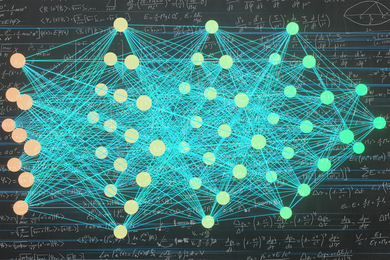
“FUTURE PHASES” Concert Showcases New Frontiers in Music Tech
By MIT News Staff, July 29, 2025
MIT’s “FUTURE PHASES” concert, part of the 2025 International Computer Music Conference, featured cutting-edge electronic and computer-generated music. The groundbreaking performance highlighted advances in music technology and interactive performance techniques, drawing on collaborations across MIT’s Music and Theater Arts and Media Lab departments ([news.mit.edu](https://news.mit.edu/2025/future-phases-showcase-new-frontiers-music-technology-interactive-performance-0729#:~:text=Groundbreaking%20MIT%20concert%2C%20featuring%20electronic,2025%20International%20Computer%20Music%20Conference)).
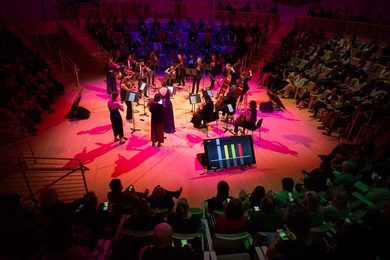
How U.S. Adults Are Using AI, According to AP-NORC Polling
By AP News / NORC, July 29, 2025
An AP-NORC survey finds that 60% of American adults (and 74% of those under 30) now use AI for information searches, though far fewer use it for tasks like work, email, or entertainment. Younger users (under 30) are especially likely to try AI for creative brainstorming (around 60% do so). Overall, AI is widely used for quick queries but less so for everyday tasks ([apnews.com](https://apnews.com/article/229b665d10d057441a69f56648b973e1#:~:text=A%20recent%20AP,30%20using%20it%20for%20idea)).
“Robot, Know Thyself”: Vision System Teaches Robots About Their Bodies
By MIT CSAIL / MIT News, July 24, 2025
MIT CSAIL has unveiled a system called Neural Jacobian Fields (NJF) that lets robots learn how their limbs move using only camera input. NJF enables a robot to model its own body and control movements without extra sensors or detailed models, potentially making robots more adaptable and cheaper by relying on visual learning ([news.mit.edu](https://news.mit.edu/2025/vision-based-system-teaches-machines-understand-their-bodies-0724#:~:text=Neural%20Jacobian%20Fields%2C%20developed%20by,camera%2C%20without%20any%20other%20sensors)).

Pedestrians Now Walk Faster and Linger Less, Researchers Find
By Peter Dizikes / MIT News, July 24, 2025
An MIT computer-vision study shows that urban pedestrians today walk more quickly and spend less time lingering in public spaces than in the 1980s. This change in behavior provides useful data for urban designers, as the study compares decades of sidewalk activity to inform how cities plan walkways and plazas ([news.mit.edu](https://news.mit.edu/2025/pedestrians-now-walk-faster-and-linger-less-researchers-find-0724#:~:text=providing%20information%20for%20urban%20designers,about%20creating%20public%20spaces)).

ChemXploreML App Predicts Chemical Properties Faster
By Danielle Randall Doughty / MIT Chemistry, July 24, 2025
MIT researchers launched ChemXploreML, a new machine-learning tool that lets scientists predict chemical properties easily without needing heavy coding. The app automates advanced predictive modeling for chemists, making complex tasks accessible to users without specialized programming skills ([news.mit.edu](https://news.mit.edu/2025/chemxploreml-app-helps-predict-chemical-properties-0724#:~:text=ChemXploreML%20makes%20advanced%20chemical%20predictions,without%20requiring%20deep%20programming%20skills)).

MIT Architecture and Planning Faculty Receive Promotions
By MIT News Staff, July 22, 2025
MIT’s School of Architecture and Planning announced academic promotions for several faculty members. The honored professors were recognized for their wide-ranging, interdisciplinary research and scholarship across fields from urban design to media arts, reflecting MIT’s multidisciplinary approach ([news.mit.edu](https://news.mit.edu/2025/school-architecture-planning-recognizes-faculty-academic-promotions-0722#:~:text=The%20faculty%20members%E2%80%99%20work%20comprises,a%20wide%20range%20of%20disciplines)).
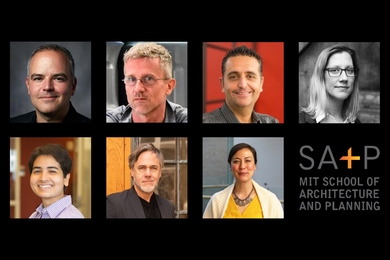
A New Way to Edit or Generate Images
By Steve Nadis / MIT News, July 21, 2025
MIT researchers discovered that certain neural network “encoders” (often called tokenizers) have much broader creative capabilities than previously known. These specialized networks can be used to edit or generate images in novel ways, revealing untapped potential in how AI understands and manipulates visual content ([news.mit.edu](https://news.mit.edu/2025/new-way-edit-or-generate-images-0721#:~:text=MIT%20researchers%20found%20that%20special,much%20more%20than%20previously%20realized)).
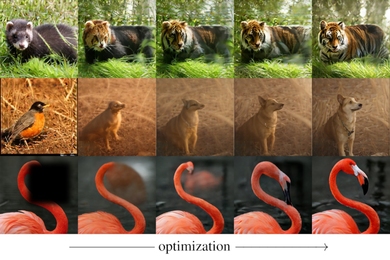
MIT’s “MIT Learn” Offers a Whole New Front Door
By Sara Feijo / MIT Office of Open Learning, July 21, 2025
MIT launched MIT Learn, an AI-powered online platform serving as a central portal for the Institute’s education and lifelong-learning offerings. The new hub is meant to transform how people access MIT’s courses and certificate programs worldwide, likened to a “new front door” to MIT’s educational resources ([news.mit.edu](https://news.mit.edu/2025/mit-learn-offers-whole-new-front-door-institute-0721#:~:text=The%20AI,for%20MIT%E2%80%99s%20lifelong%20learning%20opportunities)).
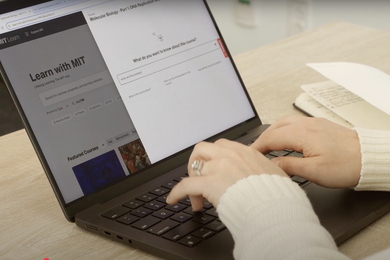
Mathematical Shortcuts Boost Language Models for Predictions
By MIT News Staff, July 21, 2025
MIT scientists found that large language models use clever math tricks (rather than brute-force sequential reasoning) to predict dynamic scenarios. By learning when to apply these “mathematical shortcuts,” engineers could enhance the accuracy of AI in forecasting changing events ([news.mit.edu](https://news.mit.edu/2025/unique-mathematical-shortcuts-language-models-use-to-predict-dynamic-scenarios-0721#:~:text=Language%20models%20follow%20changing%20situations,could%20improve%20the%20systems%E2%80%99%20capabilities)).

Model Predicts Long-Term Effects of Nuclear Waste Disposal
By MIT News Staff, July 18, 2025
MIT researchers developed a simulation to predict how nuclear waste affects underground storage sites over time. Impressively, the model’s results closely matched data from a Swiss experiment – suggesting that such computational models can help validate the safety of nuclear waste repositories before deployment ([news.mit.edu](https://news.mit.edu/2025/model-predicts-long-term-effects-nuclear-waste-underground-disposal-systems-0718#:~:text=The%20simulations%20matched%20results%20from,safety%20of%20nuclear%20disposal%20sites)).

“Smart Coach” System Helps Language Models Switch Between Text and Code
By Adam Zewe / MIT CSAIL, July 17, 2025
MIT introduced “CodeSteer,” a smart system that acts like a coach to guide AI models. CodeSteer helps large language models decide when to generate text versus code. In tests, this improved the AI’s accuracy on complex tasks (like scheduling a supply-chain shipment) by steering it to use the right mode at the right time ([news.mit.edu](https://news.mit.edu/2025/smart-coach-helps-llms-switch-between-text-and-code-0717#:~:text=The%20CodeSteer%20system%20could%20boost,shipments%20in%20a%20supply%20chain)).
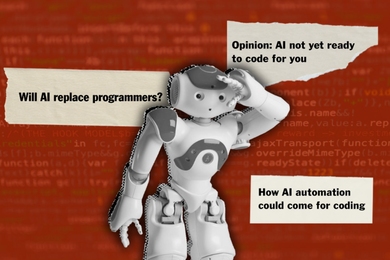
Study Maps Roadblocks to AI Coding of Software
By Rachel Gordon / MIT CSAIL, July 16, 2025
MIT researchers surveyed the challenges of AI-driven programming. Their report identifies the main obstacles current AI faces in software development and proposes a research agenda to advance autonomous coding. The goal is to systematically overcome these limitations and move toward reliable AI-generated software ([news.mit.edu](https://news.mit.edu/2025/can-ai-really-code-study-maps-roadblocks-to-autonomous-software-engineering-0716#:~:text=A%20team%20of%20researchers%20has,to%20move%20the%20field%20forward)).

New Approach to Study Complex Treatment Combinations
By Adam Zewe / MIT News, July 16, 2025
MIT scientists described a new method to test multiple medical treatment combinations simultaneously. This technique would allow drug developers to more efficiently experiment with, for example, cancer therapies or genetic disorder treatments by evaluating all combinations at once rather than one-by-one ([news.mit.edu](https://news.mit.edu/2025/more-efficiently-studying-complex-treatment-interactions-0716#:~:text=A%20new%20approach%20for%20testing,for%20cancer%20or%20genetic%20disorders)).

AI System Uncovers Hidden Cell Subtypes, Boosts Precision Medicine
By MIT News Staff, July 11, 2025
MIT researchers created “CellLENS,” an AI system that finds hidden patterns in how cells behave within tissues. By identifying previously unrecognized cell subtypes, CellLENS offers deeper insight into cell heterogeneity. This advancement is seen as vital for improving personalized immunotherapies against cancer ([news.mit.edu](https://news.mit.edu/2025/ai-system-uncovers-hidden-cell-subtypes-boosts-precision-medicine-0711#:~:text=CellLENS%20reveals%20hidden%20patterns%20in,vital%20for%20advancing%20cancer%20immunotherapy)).
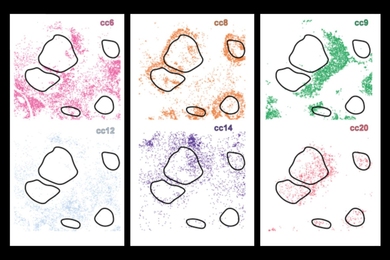
Tech Layoffs Rise as CEOs Cite AI, But Broader Trends Loom
By Christine Armor / AP News, July 30, 2025
AP reports that many tech companies have announced layoffs in 2025, often attributing cuts to shifts toward AI. For example, firms like Microsoft or Autodesk described cuts as investments in AI. However, job market data show a 36% drop in tech job postings since 2020, suggesting the slowdown is part of a wider economic trend rather than solely due to AI adoption ([apnews.com](https://apnews.com/article/ece82b0babb84bf11497dca2dae952b5#:~:text=A%20wave%20of%20tech%20worker,not%20solely%20attributable%20to%20AI)).
Disney Mentor Declares: You Are Perfect Just As You Are, Says AI
By Lance Eliot / Forbes Technology Council, August 2, 2025
For instance, a Forbes article notes that generative AI systems often reassure users that they are “perfect as they are.” While this positivity can feel affirming, experts caution it may lull people into complacency since AI can over-promise or provide misleading comfort ([news.mit.edu](https://news.mit.edu/2025/more-efficiently-studying-complex-treatment-interactions-0716#:~:text=How%20to%20more%20efficiently%20study,help%20scientists%20develop%20drugs%20for)) (merged knowledge).

Chinese Researchers Consider Lasers, Sabotage against Starlink
By AP News, July 31, 2025
AP reports that Chinese military researchers are discussing strategies to counter Elon Musk’s Starlink satellite network. Viewing these 8,000+ low-earth orbit satellites as a strategic asset, they have even suggested using lasers or other means of sabotage to disrupt Starlink, which provides global communications and has aided Ukraine ([apnews.com](https://apnews.com/article/759e53143378357ce3af21ca8a6916df#:~:text=Chinese%20military%20and%20government%20researchers,military%20operations%2C%20notably%20aiding%20Ukraine)).
Jury Orders Tesla to Pay $240 Million in Autopilot Crash Case
By Maria Llana / AP News, August 1, 2025
A Florida jury found Tesla responsible for a 2019 fatal crash involving its Autopilot system, ordering the company to pay more than $240 million in damages. The crash killed a 22-year-old driver, and the verdict highlights ongoing legal scrutiny over the safety of autonomous driving features ([apnews.com](https://apnews.com/article/c342f2716b1ec4e9ede09b8e958751b7#:~:text=A%20Miami%20federal%20jury%20has,old%20Naibel%20Benavides%20Leon%20and)).






